Figures of Analysis Results: Children's Reading Behavior Patterns (from Elementary to Senior High School
*All data are obtained from the Japanese Longitudinal Study of Children and Parents (JLSCP) => Please see "Data Used for Analysis."- Trend of children's reading behavior patterns: About 50% of children spend no time reading, and the average reading time decreased over the past seven years
- About 50% of children spend no time reading for enjoyment
Among 1st-12th graders (i.e., elementary to senior high school students), 49.0% of children answered they spend "0 min" reading on weekdays. The percentage of boys who spend no time reading is higher than that of girls. The higher the educational stage, the higher the percentage of children who spend no time reading. - Average reading time has decreased slightly over the past seven years
Children's average reading time has decreased by 3.0 minutes from 18.2 minutes in 2015 to 15.2 minutes in 2022.
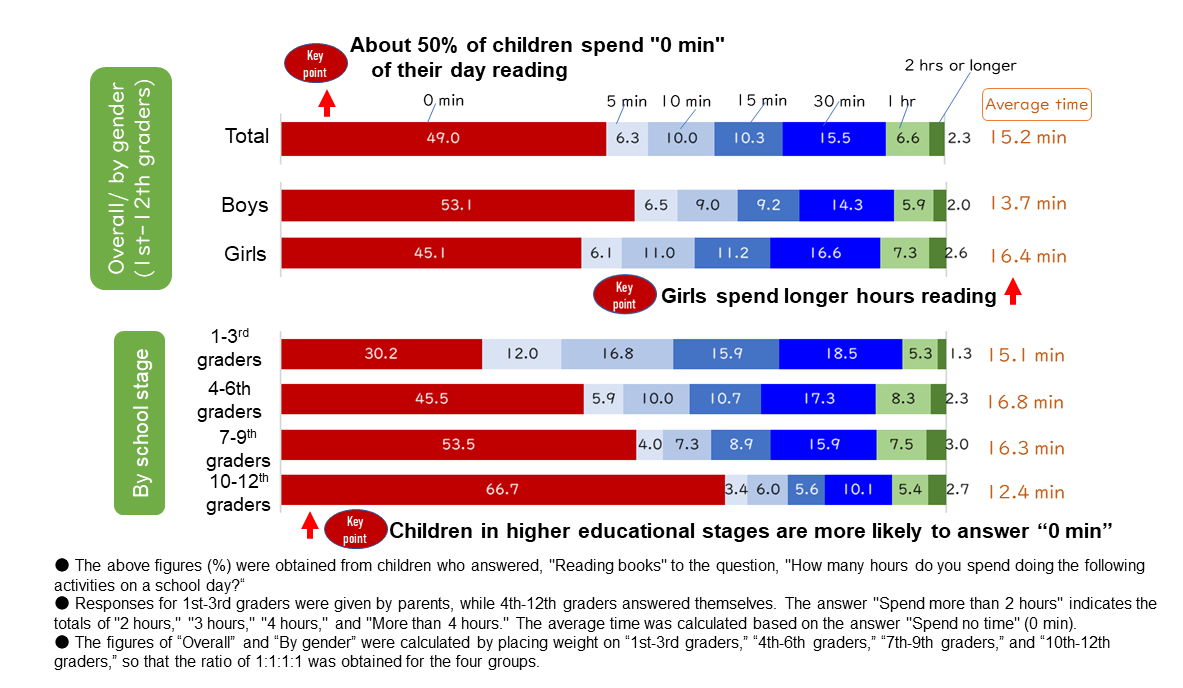
Figure 1: Reading time per day (Overall/by gender/by school stage) [Data from 2022]
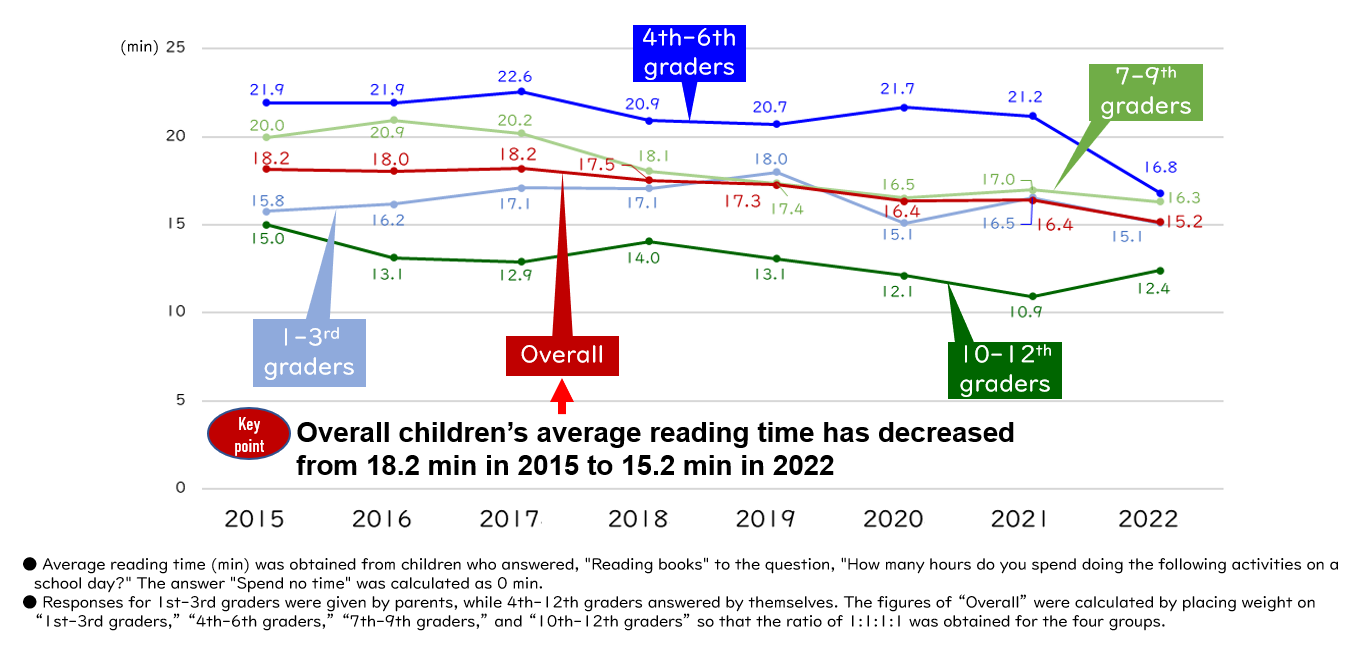
Figure 2: Trend of average reading time (p/day; by school stage)[Data from 2015-2022]
- About 50% of children spend no time reading for enjoyment
- Family factors: Reading aloud for children positively affects children's reading behavior patterns. In addition, helping and encouraging children to develop good reading habits in their early childhood is critical.
- The length of children's reading time differs depending on their family environment
Children whose families have a lot of books at home or whose parents teach the importance of reading books are more likely to spend longer hours reading for pleasure. - Reading aloud for preschool children has a positive effect on their reading habits for a long time
Children whose parents read aloud for them at the preschool stage are more likely to spend more time on reading. The effects of reading aloud continue until they become 7th - 9th graders (junior high school). - Children's reading habits developed in their early childhood are retained as they grow
Children who develop reading habits in early childhood are more likely to spend time on extended reading as they grow older.
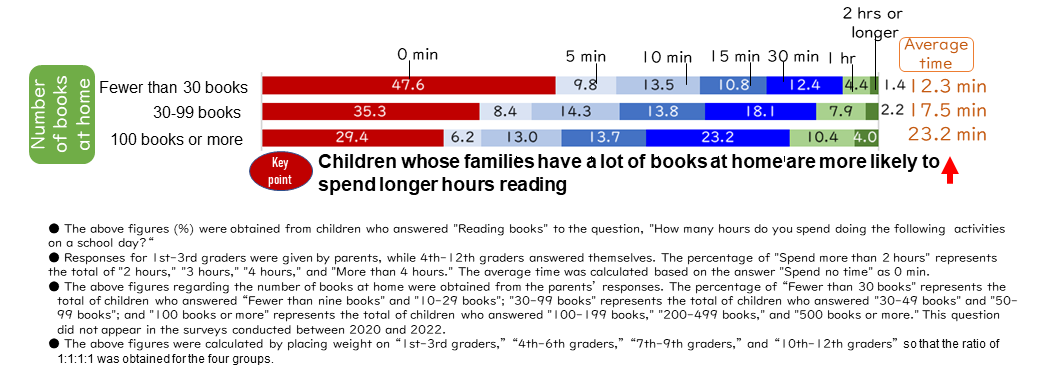
Figure 3-1: Reading time per day (by number of books at home) [Data from 2019]

Figure 3-2: Reading time per day (by parental interaction) [Data from 2021]
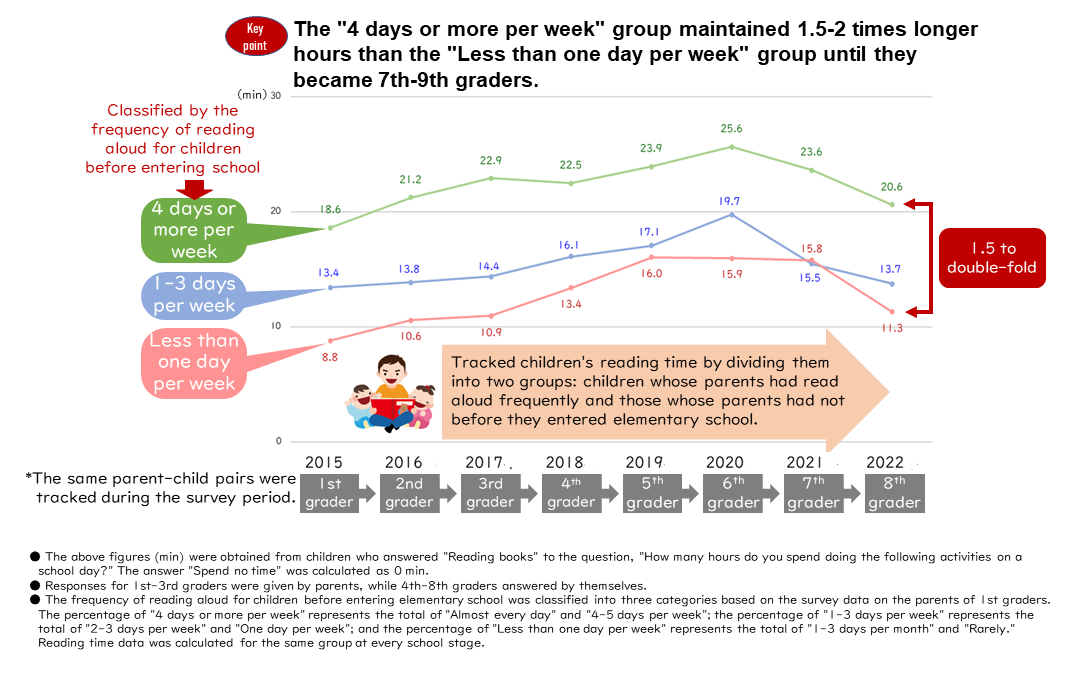
Figure 4: Children's change of reading time (by frequency of being read aloud at the stage of preschool; tracking them until they became 8th graders) [Data from 2015-2022]
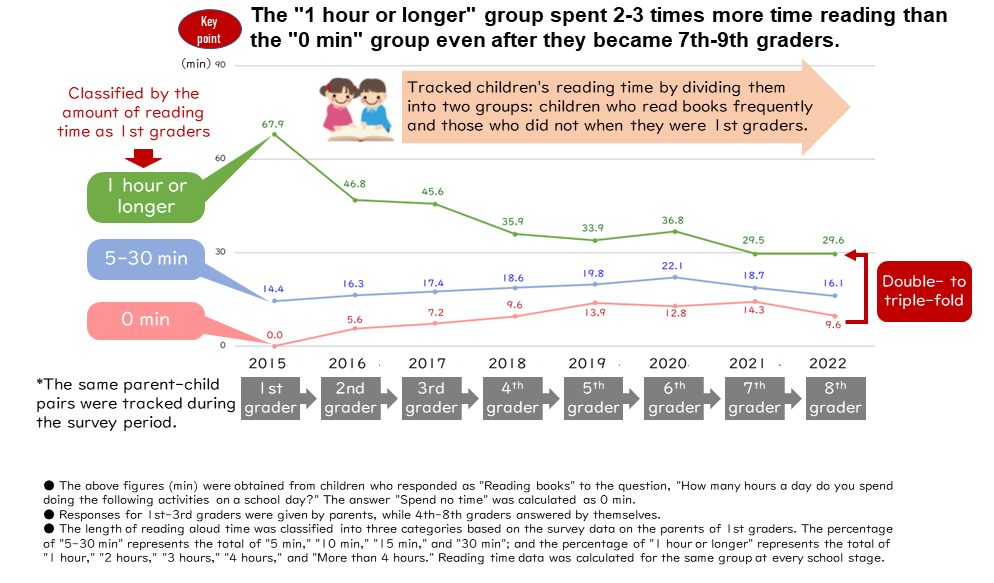
Figure 5: Children's change of reading time (by reading time as 1st grader)
- The length of children's reading time differs depending on their family environment
- Effects of reading: Children with reading habits evaluate themselves highly
- Highly evaluate their abilities of understanding, thinking, and expression
Children reading for more extended hours positively evaluate their abilities to understand, think, and express ideas and feelings. - Children's reading behavior patterns are associated with their confidence and future goals
Children who do not have good reading habits show less positive attitudes toward their interest in news events, confidence, and future goals.
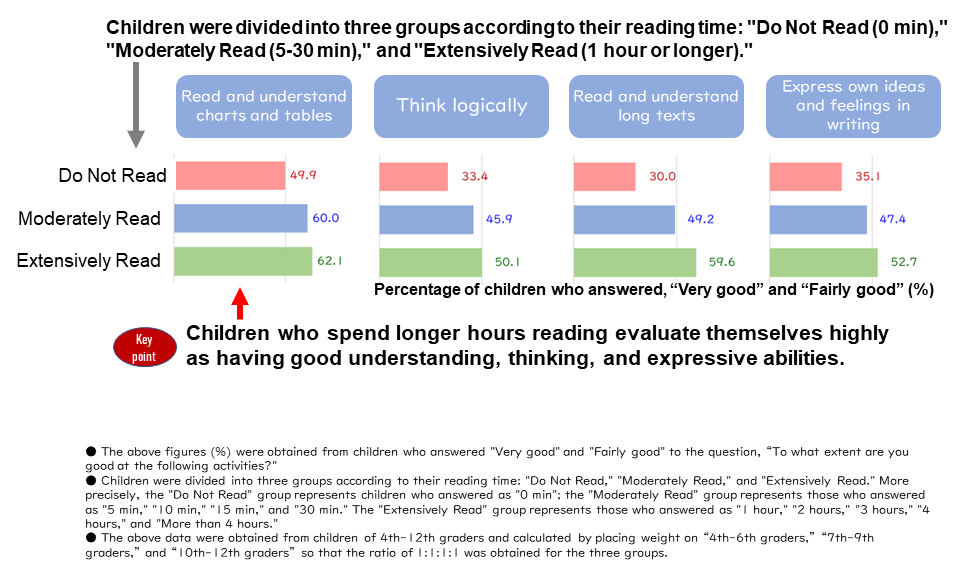
Figure 6: Children's self-evaluation (abilities of understanding, thinking, and expression) (by reading time) [Data from 2022]
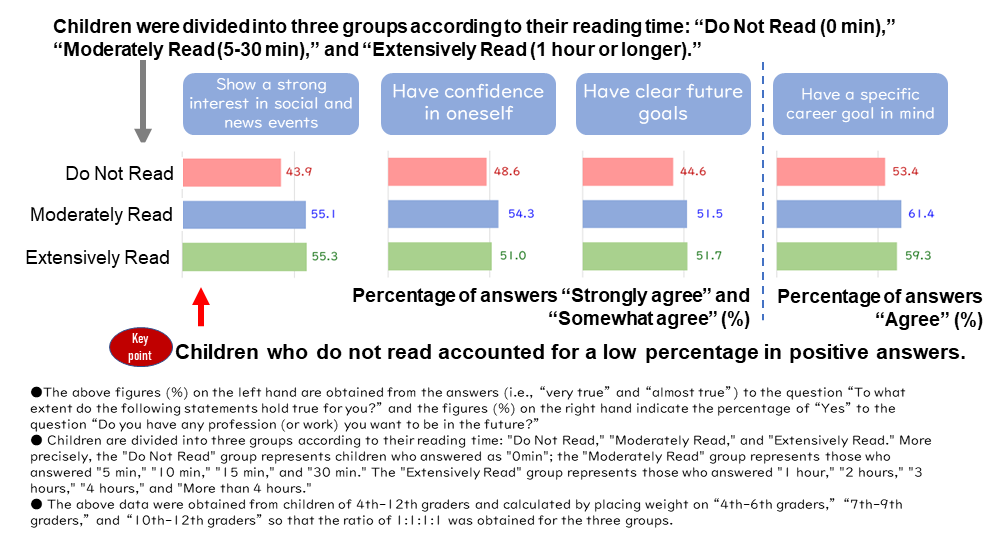
Figure 7: Personalities/desired career (by amount of reading time) [Data from 2022] - Highly evaluate their abilities of understanding, thinking, and expression
Additional Information
For more detailed analysis data, please visit the link below (in Japanese):
https://berd.benesse.jp/special/datachild/datashu04.php
Data Used for Analysis
•Based on the Japanese Longitudinal Study of Children and Parents (JLSCP) (jointly conducted by the Institute of Social Science, the University of Tokyo, and the Benesse Educational Research & Development Institute)
[Survey Theme]: Child Survey on Awareness and Actual Conditions of Children's Lives and Learning/ Parent Survey on Parental Perceptions and Attitudes towards Childrearing and Education (the annual follow-up survey on the same parent-child pairs since 2015)
[Survey Period]: Between July and September every year
[Survey Method]: Questionnaire forms were sent by mail each year and collected by mail/online in 2015, by mail in 2016-2020, by mail/online in 2021, and by online in 2022.
[Survey Participants]: Questionnaire forms were sent to about 20,000 parent-child pairs annually. The number of forms sent/collected and the collection rates are as follows:

•For more information about this survey, please visit the link below (in Japanese):
https://berd.benesse.jp/special/childedu/
About the Benesse Educational Research & Development Institute
The Benesse Educational Research & Development Institute (BERD) is an in-house think tank of Benesse Corporation launched in 1980. The BERD conducts various surveys and research on children, parents, schools, and teachers. It has also been working on R&D activities to explore educational content, methods, and assessments. Findings and insights obtained from surveys and research studies are published on the BERD website to disseminate valuable information with the aim of improving the environmental conditions surrounding children's growth and development.
[Project leader]
- Haruo Kimura (Principal researcher at the Benesse Educational Research & Development Institute)
[Project members]
- Runa Matsumoto (Senior researcher at the Benesse Educational Research & Development Institute)
- Yumiko Fukumoto (Researcher at the Benesse Educational Research & Development Institute)
- Masataka Tomonaga (Researcher at the Benesse Educational Research & Development Institute)
- Koji Nakajima (Senior researcher at the Benesse Educational Research & Development Institute)
- Hatsue Ouchi (Research staff at the Benesse Educational Research & Development Institute)
- Mio Watanabe (Research staff at the Benesse Educational Research & Development Institute)














